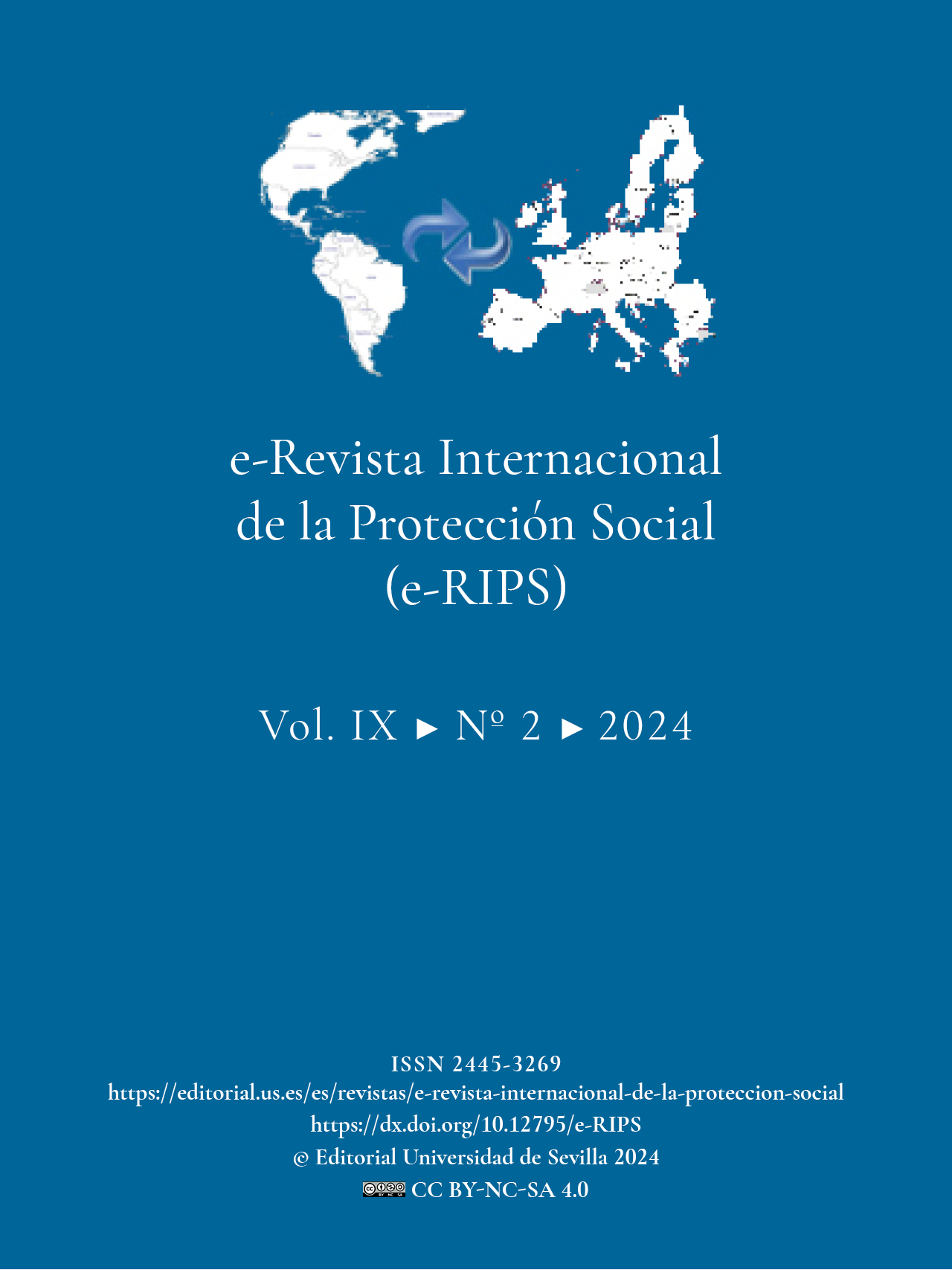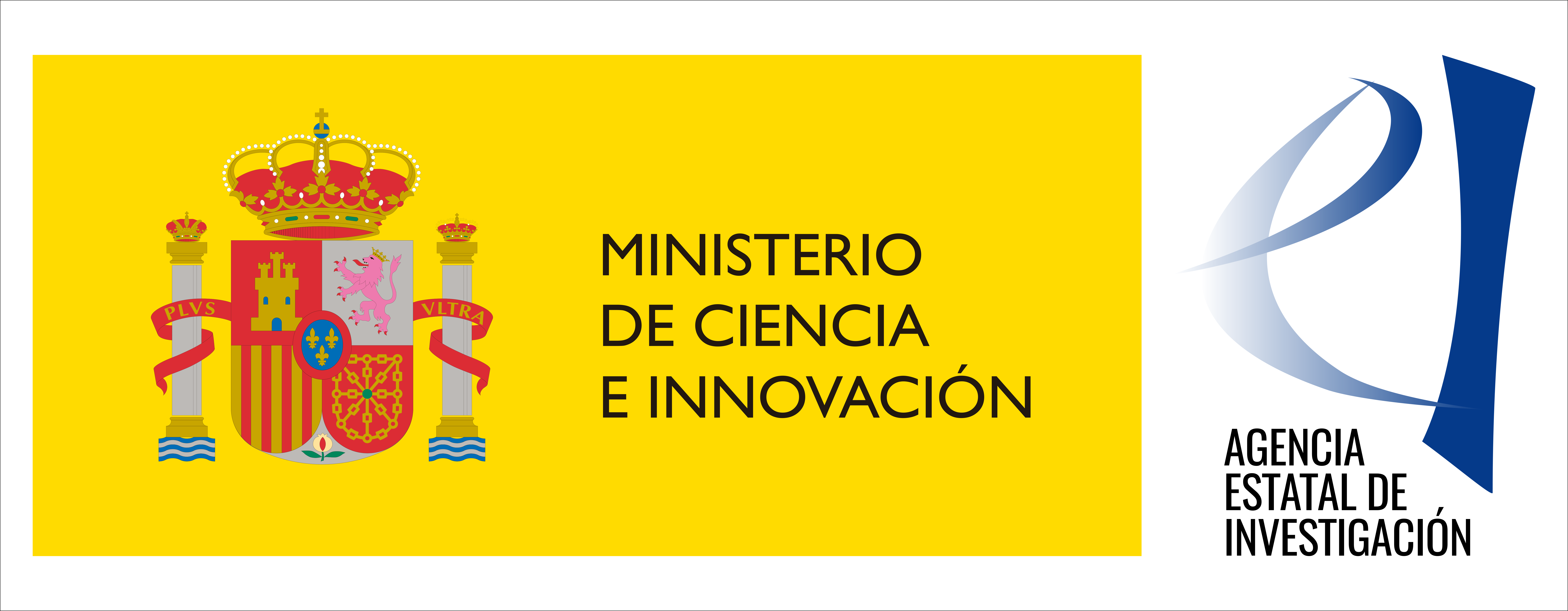The RED Mechanism as the paradigm of European support for job creation in Spain
DOI:
https://doi.org/10.12795/e-RIPS.2024.i02.02Keywords:
Work, Employment, Flexibility, Labor relationsAbstract
The UE for its member states contributes to the protection and reactivation of employment in times of crisis or economic reconversion through funds, and an example of the destination of these is the so-called Spanish “RED Mechanism”, a measure that, using resources from The Union, was designed after the upheaval caused in the framework of labor relations by the pandemic
caused by COVID-19. This Mechanism provides a novelty that the measures implementable through it have transcended from specific business situations to the general one. based on a “more generalized situation, in the scope of a productive sector of the entire economic activity.” According to what has been expressed and despite the fact that the decision to activate this aid mechanism is already attributed exclusively to the Council of Ministers, an important and direct participation of social agents and greater legislative development are also necessary.
Downloads
References
Cano Galán Y. “El Mecanismo RED”. Revista de Derecho Laboral vLex. Monográfico“: Reforma Laboral 2022”. Nº5 Marzo 2022, p.91
Cavas Martínez, F.: “El refuerzo de los ERTE como garantía de estabilidad del
empleo en la nueva Reforma Laboral 2021”, en NET21, núm. 8, 2022.
Cortés Álvarez, Juan Carlos (2024). “Capítulo III. La rama de desempleo de los sistemas de seguridad social y el pilar europeo de derechos sociales: otro reto pendiente”. En AAVV. (Dir. Isabel Villar Cañada-Cristóbal Molina Navarrete). Pilar europeo de Derechos Sociales y progreso jurídico de la Unión y de España: logros y asignaturas pendientes. Editorial Bomarzo, Albacete, pp. 65-90.
Cruz Villalón, J. J. “El Sistema RED de regulación temporal de empleo”. Briefs de la Asociación Española de Derecho del Trabajo y Seguridad Social (Rescatado de https://elderecho.com/regulacion-del-mecanismo-red
Márquez Prieto A. “Autonomía colectiva y reestructuración sectorial en la transición ecológica”. En XL Jornadas Universitarias Andaluzas de Derecho del Trabajo y Relaciones Laborales 40 años de propuestas jurídicas sobre empleo, negociación colectiva y solución de conflictos laborales en Andalucía. Coord. por José Luis Monereo Pérez, 2024, ISBN 978-84-09-59984-4, pág.207.
Martínez Mateo C.J. “El trabajador migrante ante los mercados laborales de España y Europa en la precrisis del covid-19”. Revista de derecho migratorio y extranjería, ISSN 1695-3509, nº. 54, 2020, págs. 40.
Monereo Pérez J.L y Ortega Lozano P.G. “Mecanismo red de flexibilidad interna y garantía de estabilización del empleo (Artículo 47 bis del estatuto de los trabajadores y disposiciones concordantes)”. Temas Laborales núm.161/2022. págs. 305-334.
Monereo Pérez, J.L.: La dignidad del trabajador. Dignidad de la persona en el sistema de relaciones laborales. Murcia, Laborum, 2019.
Miñarro Yanini, M., “Las pretendidas “transiciones gemelas” ecológica y digital: en particular su impacto en el empleo y los procedimientos de adaptación», Revista del Ministerio de Trabajo y Economía Social, nº 156, 2023, p. 92.
Published
How to Cite
Issue
Section
License
Copyright (c) 2024 CARLOS JOSÉ MARTINEZ MATEO

This work is licensed under a Creative Commons Attribution-NonCommercial-ShareAlike 4.0 International License.
Authors being published in this journal agree to the following terms:
- Authors retain their copyright and they will guarantee to the journal the right of first publication of their work, which will be simultaneously subject to license recognition by Attribution-NonCommercial-ShareAlike (CC BY-NC-SA 4.0 DEED)
that allows others to share such work provided that the author’s name and his first publication in the e-International Review on Social Protection is stated. - Authors may take other non-exclusive distribution license agreements version of the published work (e.g. deposit in an institutional digital file or publication in a monographic volume) provided that the initial publication in this journal is stated.
- Authors are allowed and encouraged to disseminate their work via the Internet (e.g. in institutional digital files or on their website) prior to and during the submission process, which can lead to interesting exchanges and to increase citation of the published work.











